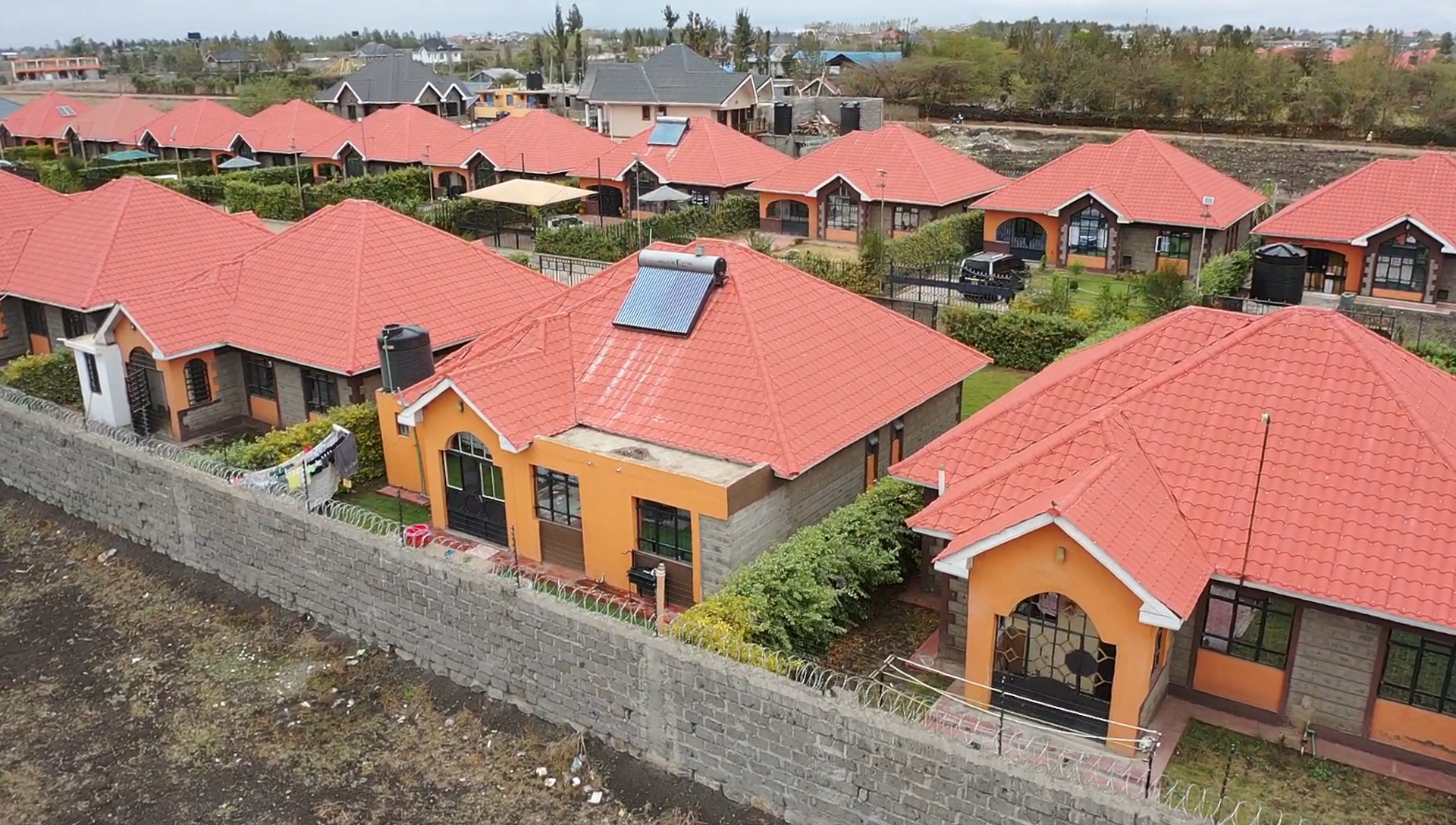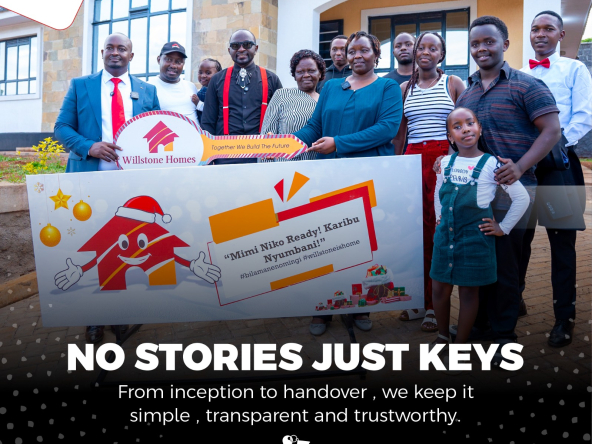In Kenya’s fast-expanding satellite towns, where dreams of homeownership meet the harsh realities of power rationing and blackouts, a new real estate revolution is quietly taking root. Increasingly, developers are embracing solar powered estates Kenya as a standard offering — not as a luxury add-on, but as an essential requirement.
From Kitengela to Kamakis, Ruiru to Ngong, ambitious new estates are positioning themselves as “solar-first,” offering homes that run entirely or largely on solar energy. As electricity grids strain under rising demand and unreliable supply, solar-powered living is no longer about saving the planet — it’s about survival, security, and serious financial sense.
Why Solar Power Has Become a Core Selling Point
The traditional marketing points for gated communities — security, water supply, road access — are now being joined by a powerful new badge of honor: solar independence.
This trend stems from three interlocking realities:
1. Chronic Power Instability
Kenya Power’s record over the past few years has been spotty at best. Scheduled blackouts for maintenance, unexpected outages, and rising tariff prices have made grid electricity both unreliable and expensive.
For developers, promising stable power through on-site solar installations has become a critical way to win over skeptical buyers tired of paying for diesel generators or UPS systems.
2. Falling Solar Costs
Thanks to global innovations and Kenya’s growing green energy sector, the cost of solar panels, batteries, and inverters has dropped dramatically.
It’s now cheaper — and more attractive — for developers to install solar solutions during construction than to retrofit later.
3. Rising Environmental Awareness
Especially among middle-class Kenyans aged 30-45, sustainability has become an important lifestyle choice.
Sustainable living Kenya is no longer a fringe concern; it’s increasingly mainstream.
Homebuyers today are asking serious questions about their carbon footprint, energy costs, and whether their estates offer true eco friendly gated communities Nairobi options.
Examples of Solar-First Developments Emerging
Several notable projects have placed solar powered estates Kenya firmly on the map:
- Maisha Developments in Kitengela offers fully solar-lit streets and solar-ready home designs.
- Unity Homes at Tatu City now integrates solar into some of its affordable housing designs, targeting young families.
- Ruiru Ridge Eco-Estate markets itself as a low-carbon community, offering hybrid solar backup systems as a standard package.
Meanwhile, upcoming private developers in places like Joska and Ngong are experimenting with off-grid estates Nairobi, specifically targeting Kenyans working remotely or retirees seeking tranquility without utility worries.
What Makes a Solar-First Estate Different?
Unlike conventional gated communities, solar gated communities Kenya are designed from the ground up with energy independence in mind.
Typical features include:
- Roof-integrated solar panels on every home.
- Centralized solar farms to power estate amenities like street lighting, security systems, and water pumps.
- Battery storage solutions to ensure 24-hour availability.
- Smart energy management systems for tracking and optimizing consumption.
- Hybrid backup plans combining solar and limited grid access, ensuring resilience even during prolonged bad weather.
In many cases, homeowners can live completely off-grid — a significant value proposition in a country where grid stability remains elusive.
Benefits for Homeowners
Investing in solar home developments Kitengela or other satellite town areas offers several advantages:
- Lower monthly energy bills — major savings compared to relying on Kenya Power.
- Stable power supply — no worrying about blackouts or power rationing.
- Higher property resale value — green homes are increasingly in demand globally.
- Positive environmental impact — reducing reliance on fossil fuels and lowering emissions.
- Potential to sell excess power — thanks to net metering laws in Kenya, homeowners can potentially feed surplus energy back into the grid in future.
Challenges and Considerations
Despite the promise, solar-first estates face some hurdles:
- Higher initial cost: Solar-equipped homes can cost 5-15% more upfront, although this is often offset over time by energy savings.
- Maintenance needs: Solar batteries need replacement every 7–10 years, and panels must be cleaned regularly for maximum efficiency.
- Policy uncertainty: Kenya’s regulatory framework for distributed energy is still evolving, and incentives like feed-in tariffs have faced delays.
Smart developers address these issues upfront — offering service contracts, maintenance guarantees, and transparent ownership structures.
The Future: Solar as Standard, Not Optional
Looking ahead, experts believe the solar real estate trends Kenya show that solar-first designs will soon become standard for any serious satellite town project.
Already, savvy buyers are increasingly asking their agents, “Is it solar-ready?” before they even ask about the price or the size of the garden.
Developers who ignore the solar trend risk losing out in a fiercely competitive market, especially as younger, tech-savvy buyers dominate demand.
Expect to see:
- Full solar cities: Developments powered 100% by renewable energy.
- Integrated water recycling and solar systems for complete sustainability.
- Energy-efficient architecture aligned with solar optimization.
- Community energy micro-grids where neighborhoods collectively generate and share power.
Kenya’s Quiet Solar Revolution in Real Estate
The solar powered estates Kenya movement marks a crucial shift in how homes are conceived, built, and sold.
In the satellite towns circling Nairobi, the future belongs to communities that can promise not just security and water — but also stable, affordable, clean energy.
For homeowners, solar-first estates represent not just a trendy lifestyle choice but a practical shield against the vulnerabilities of a stressed national grid.
For developers, they offer a new frontier to innovate, differentiate, and lead.
In Kenya’s next great real estate chapter, the brightest lights may not come from the grid — but from the sun.





